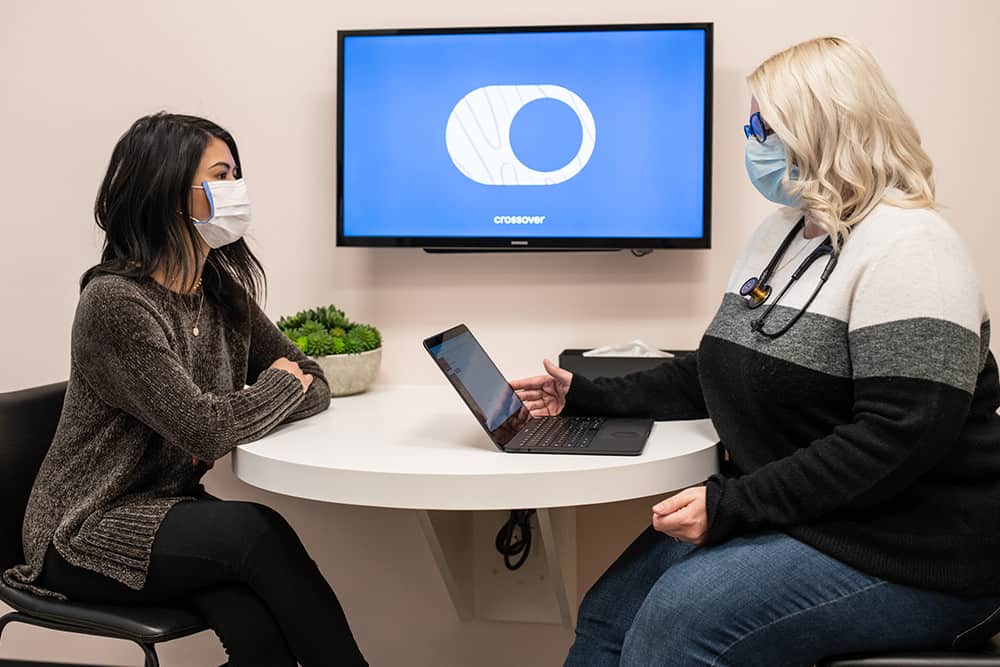
Outcomes
Building Employer Resilience to Head Off Future Outbreaks
By Stephen Ezeji-Okoye, MD
A concerning fallout of the pandemic has been the worldwide deferral of preventive care, including immunization campaigns for communicable diseases other than COVID-19. Just weeks ago, the CDC sounded the alarm about the looming potential for measles outbreaks worldwide, including in the US, with more than 40 countries having postponed their inoculation campaigns in both 2020 and 2021.
Measles is an extremely contagious disease: 9 out of 10 unprotected people will become infected if they are exposed. Although in 2000 the disease had been effectively eliminated in the US, in 2019 an outbreak of almost 1,300 cases in 31 states reminded us of the need to stay vigilant and on top of immunizations. In that 2019 outbreak, 89% of the cases were people who were unvaccinated or had no known vaccination status.
As employers build their strategies for returning employees to the workplace, now is the time to take steps to evaluate the baseline immunization and health status of their employee population, and implement proactive policies and measures to protect them from future outbreaks and illness.
New study points to hidden threats
To assess risk levels for future outbreaks among its employers, Crossover Health conducted the first published study of measles and varicella immunity in an employee population, the results of which appeared in early April in the Journal of Primary Care & Community Health. The study focused on participants who, as part of their employer-sponsored primary care at Crossover’s health centers, were eligible for MMR and varicella screenings. Employees were considered eligible if they were unable to provide proof of immunization and met other risk- and need-based criteria. In total, between January 1, 2019 and November 1, 2020, 3,494 patients were screened for MMR immunity, with 3,057 also screened for varicella immunity.
What we found was both surprising and highly concerning. More than a third (35%) of employees couldn’t document their vaccination history at all. Since most of us are vaccinated as young children, knowing and tracing vaccination status for adults can be tricky. As one infectious disease expert, Dr. William Schaffner, pointed out, “It’s complicated and often futile because it’s very difficult to resurrect those old records.” Of those we screened, 14% lacked adequate immunity to measles and 13% lacked adequate immunity to varicella. For those employees who specifically requested an immunity check (most often because of outbreaks in their country of origin), the numbers were even higher. Nearly a quarter of them (23%) lacked measles immunity — an alarming level of risk for a disease as contagious as measles.
Most surprising, however, was that the vast majority of employees who lacked immunity were born not abroad but in the U.S. Given every state has laws requiring children to be vaccinated upon entry to childcare or public school, it’s not clear why this would be the case. Further investigation of the causal factors behind this finding is certainly merited. What is clear, however, is that employers cannot safely assume immunization status for their US-born employees any more than they can for employees born abroad.
A safe strategy for returning employees to the workplace
Crossover’s study revealed an alarming degree of vulnerability for many employees — and, by extension, the employers and health plans responsible for their healthcare — to future outbreaks of measles and other highly contagious diseases. Given declines in immunizations during the COVID-19 pandemic, there is valid concern that measles and varicella-associated morbidity and mortality could rise in the months and years ahead. Aside from the public health risk, employers and health plans must also weigh the potential financial impact of managing such an outbreak. According to a recent CDC analysis, measles outbreaks have incurred total per-outbreak costs topping a million dollars, with each individual case resulting in a median cost of $32,805.
The pandemic has forced employers to revisit how they monitor and manage the ongoing health of their employees — with the most urgent focus on COVID-19 exposure and vaccination. As employers contemplate the post-pandemic workplace and devise strategies to safely bring employees back, this study underscores the need for a broader, more proactive approach to evaluating their employees’ baseline health and immunization status. Employers that have large foreign-born populations or require international travel should strongly consider evaluating the immunization status of their employee population now, offering immunity validation or vaccinations at no- or low-cost.
With Crossover’s preventive population-based approach to care, we partner closely with employers to understand and continuously evaluate the baseline health status of their employees. Through our hybrid digital/in-person model, we proactively screen for immunization status and other critical health determinants virtually and then bring people in to receive vaccinations and close other critical care gaps.
As one analyst recently observed, every company is now effectively in the health business. The same tools and approaches that can prevent a devastating measles outbreak in the workplace can also stave off slow-moving but costly “outbreaks” of hypertension, diabetes, or depression. Employers determined to build a resilient workplace for the future won’t wait to deal with the aftermath; they will invest, plan, and take the action needed to keep their people healthy and safe.
